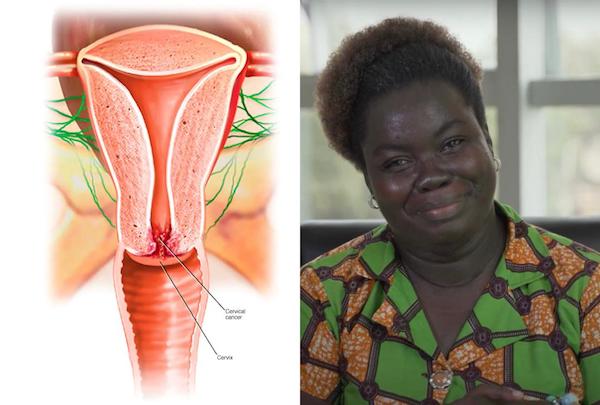Dr. Efua Commeh, the Non-Communicable Diseases (NCD) Program Manager at Ghana Health Service (GHS) has lamented Ghana Cervical Cancer crisis and the rate of infection of the disease and has called for an urgent action to curb the canker.
Ghana is currently facing a critical cervical cancer crisis, with an alarmingly high mortality rate of 50%. Each year, almost 4,000 women receive a diagnosis of cervical cancer, and tragically, more than 2,000 women lose their lives to this disease. This dire situation underscores the urgent need for comprehensive public health interventions.
In response to this growing health emergency, the Ghana Health Service (GHS) has issued a call to action. They emphasize the importance of raising public awareness, expanding the number of screening centers, and securing increased funding to support effective public health measures. These steps are essential to address the rising incidence of cervical cancer and reduce the mortality rate associated with this preventable disease.
Dr. Commeh has highlighted several systemic inadequacies exacerbating the crisis. There is a severe shortage of screening centers nationwide, and the existing facilities are often out of reach for many women due to transportation challenges. Consequently, a significant number of cervical cancer cases are diagnosed at advanced stages, where treatment options are limited and less effective. This calls for immediate improvements in accessibility and resources to ensure early detection and better outcomes for women across Ghana.
Remarks by Dr. Efua Commeh on Ghana Cervical Cancer Crisis
The situation is not good. We record almost 4,000 cases ofcervical cancer annually and lose more than 2,000 of them. This high mortality rate is due to late detection. Over 75% of our cases are reported in stages three or four, where treatment options are limited.
We are trying to create awareness and advocate for the establishment of more screening centers. Early detection can significantly improve outcomes. Creating awareness is like 50% of the work done. People need to know thatcervical cancer is preventable, and that early detection can save lives.
We have put in applications to ensure that by next year, we will be vaccinating young girls. The earlier we can prevent the disease, the better, Dr. Commeh stated.
Ghana Cervical Cancer Some Risk Factors

Cervical Cancer Risks Factors


